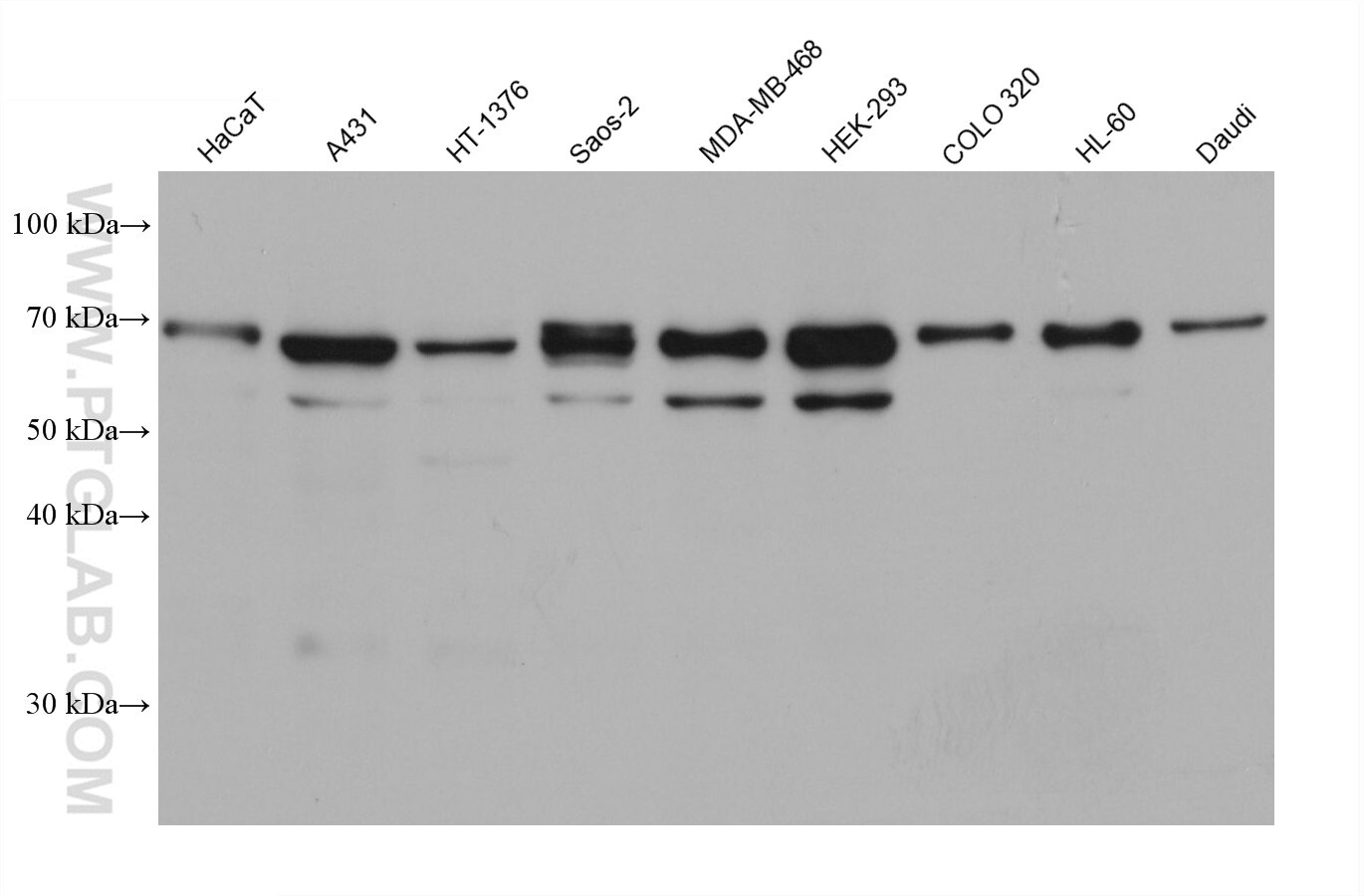NPHP5/IQCB1 Monoclonal antibody
NPHP5/IQCB1 Monoclonal Antibody for WB, ELISA
Host / Isotype
Mouse / IgG2a
Reactivity
Human
Applications
WB, ELISA
Conjugate
Unconjugated
CloneNo.
2A9F4
Cat no : 68404-1-Ig
Synonyms
Validation Data Gallery
Tested Applications
| Positive WB detected in | HaCaT cells, A431 cells, HT-1376 cells, Saos-2 cells, MDA-MB-468 cells, HEK-293 cells, COLO 320 cells, HL-60 cells, Daudi cells |
Recommended dilution
| Application | Dilution |
|---|---|
| Western Blot (WB) | WB : 1:2000-1:10000 |
| Sample-dependent, check data in validation data gallery | |
Product Information
68404-1-Ig targets NPHP5/IQCB1 in WB, ELISA applications and shows reactivity with Human samples.
| Tested Reactivity | Human |
| Host / Isotype | Mouse / IgG2a |
| Class | Monoclonal |
| Type | Antibody |
| Immunogen | NPHP5/IQCB1 fusion protein Ag8203 相同性解析による交差性が予測される生物種 |
| Full Name | IQ motif containing B1 |
| Calculated molecular weight | 598 aa, 69 kDa |
| Observed molecular weight | 69 kDa |
| GenBank accession number | BC005806 |
| Gene symbol | IQCB1 |
| Gene ID (NCBI) | 9657 |
| Conjugate | Unconjugated |
| Form | Liquid |
| Purification Method | Protein A purification |
| Storage Buffer | PBS with 0.02% sodium azide and 50% glycerol pH 7.3. |
| Storage Conditions | Store at -20°C. Stable for one year after shipment. Aliquoting is unnecessary for -20oC storage. |
Background Information
IQCB1, also known as NPHP5, is a nephrocystin protein that interacts with calmodulin and the retinitis pigmentosa GTPase regulator protein. It has a central coiled-coil region and two calmodulin-binding IQ domains. Localized to the primary cilia of renal epithelial cells and connecting cilia of photoreceptor cells, IQCB1 is thought to play a role in ciliary function. Mutations in this gene result in Senior-Loken syndrome type 5, a juvenile disorder characterized by defects in the waste filtering system of the kidney, as well as retinal degradation.
Protocols
| Product Specific Protocols | |
|---|---|
| WB protocol for NPHP5/IQCB1 antibody 68404-1-Ig | Download protocol |
| Standard Protocols | |
|---|---|
| Click here to view our Standard Protocols |


